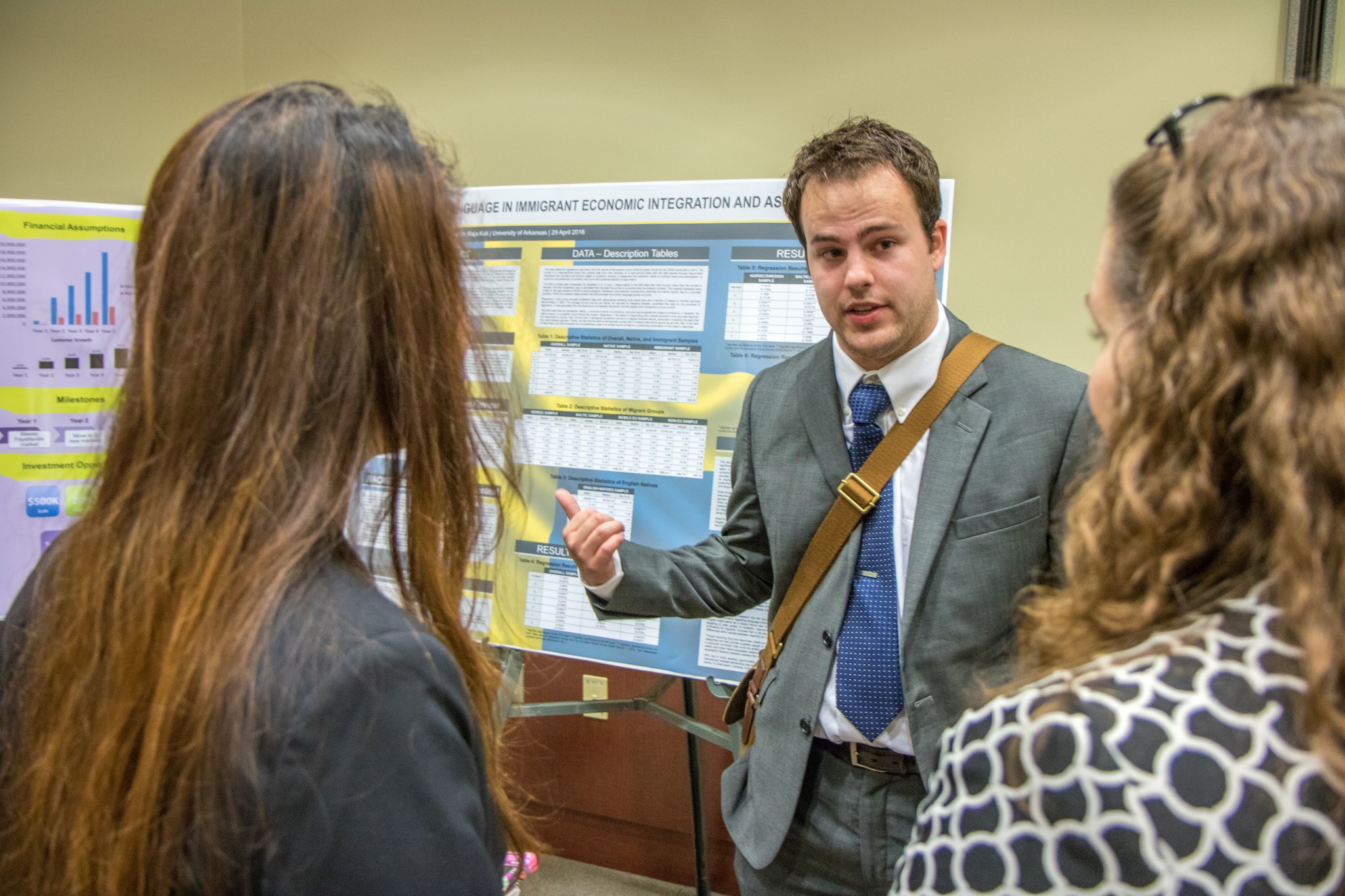
According to The Spectator, over 163,000 asylum-seekers made their way to Sweden last year. (CC Image courtesy of Bundesministerium für Europa on Flickr)
We’ve all seen the photo of Omran Daqneesh, the little boy in an ambulance in Aleppo, covered in dust and blood from an airstrike that destroyed his home. International news has been awash in stories of immigrants crossing borders from Syria and other war-torn nations, and these people and the policies governing them have been demonized or lionized by rival camps.
Nathanael Mickelson’s honors thesis isn’t interested in these binaries: “The truth is always somewhere in the middle.” This history and business economics major is more attentive to the middle spaces, on understanding the historical and cultural reasons for the current migrant crisis. Sure, Mickelson says, if immigrants cannot assimilate into a culture, they can become a burden on an economy, but they can also be integral to countries like Sweden with low birth rates and labor shortages.
As he puts it, there’s a moral and then a feasibility challenge to immigration policies. Mickelson considered the latter, focusing on ways to get immigrants assimilated into an economy. For this he looked at one of the most daunting barriers—the pay gap between workers who speak the native language and those who don’t. Mickelson considered many factors that might affect this—distance from the immigrant’s home country, for example—before striking gold with his research question.
Immigrants who don’t speak the dominant language are at an economic disadvantage, but what effect does the presence of a third language, a lingua franca such as English, have on their chances to assimilate? This is the question Mickelson took up for his honors thesis, and it’s one that hasn’t been looked at before. He chose to focus on Sweden, a country sometimes called the “most open” in terms of its immigration policy, where English is so prominent an American like himself could spend a semester there without learning more than a few words of Swedish. Mickelson comes from Scandinavian stock, his last name is Swedish, and he studied economics at Jönköping International Business School during his junior year. Mickelson said, “Based on my daily life, being able to do well for five months at a Swedish university using English, it made me wonder if, especially with how accessible English is today, that provides an opportunity for a transition market.”

An outdoor market in Rinkeby, a predominantly immigrant neighborhood in Stockholm. (CC Image courtesy of Tricia Wang on Flickr.)
After crunching the numbers with data he collected from the European Social Survey, he found that knowledge of English all but eliminated the language gap. Immigrants could use English, a language much easier for them to learn, as a bridge to Swedish. Through rigorous statistical analysis he found that this greatly improved their chances of economic success.
Dr. Raja Kali, Mickelson’s thesis advisor, wasn’t surprised to hear that this research won Outstanding Honors Thesis for the Sam W. Walton College of Business last spring. “It’s really an outstanding piece of scholarship. He was able to gather data and provide a statistical analysis to shed light on this question, and that’s not easy, even for someone who’s a well-established and experienced researcher.” He says it’s a great sign for future potential.
Mickelson, whose research was funded by a SURF grant, realizes this work is a small but valuable piece of a bigger puzzle. “There are a ton of variables to a complicated problem like immigration. The more and more puzzle pieces we find out, the more complete our puzzle is. I think that’s really the key to research and the driving force of this. The future of this research is finding more specific data for this question and finding what the practical applications are. Would it be feasible in practice to have this English transition labor market?”
Mickelson is currently finishing up his math minor and has been encouraged by Dr. Kali to apply to top graduate schools across the country for economics. But he wants to come back: “I think Fayetteville is one of the few places where whatever you believe or your background is, it’s open arms. Ideally the Arkansas kid in me wants to wind up in a couple of random places, make some new memories but come back to teach in Fayetteville when I get my PhD.”

